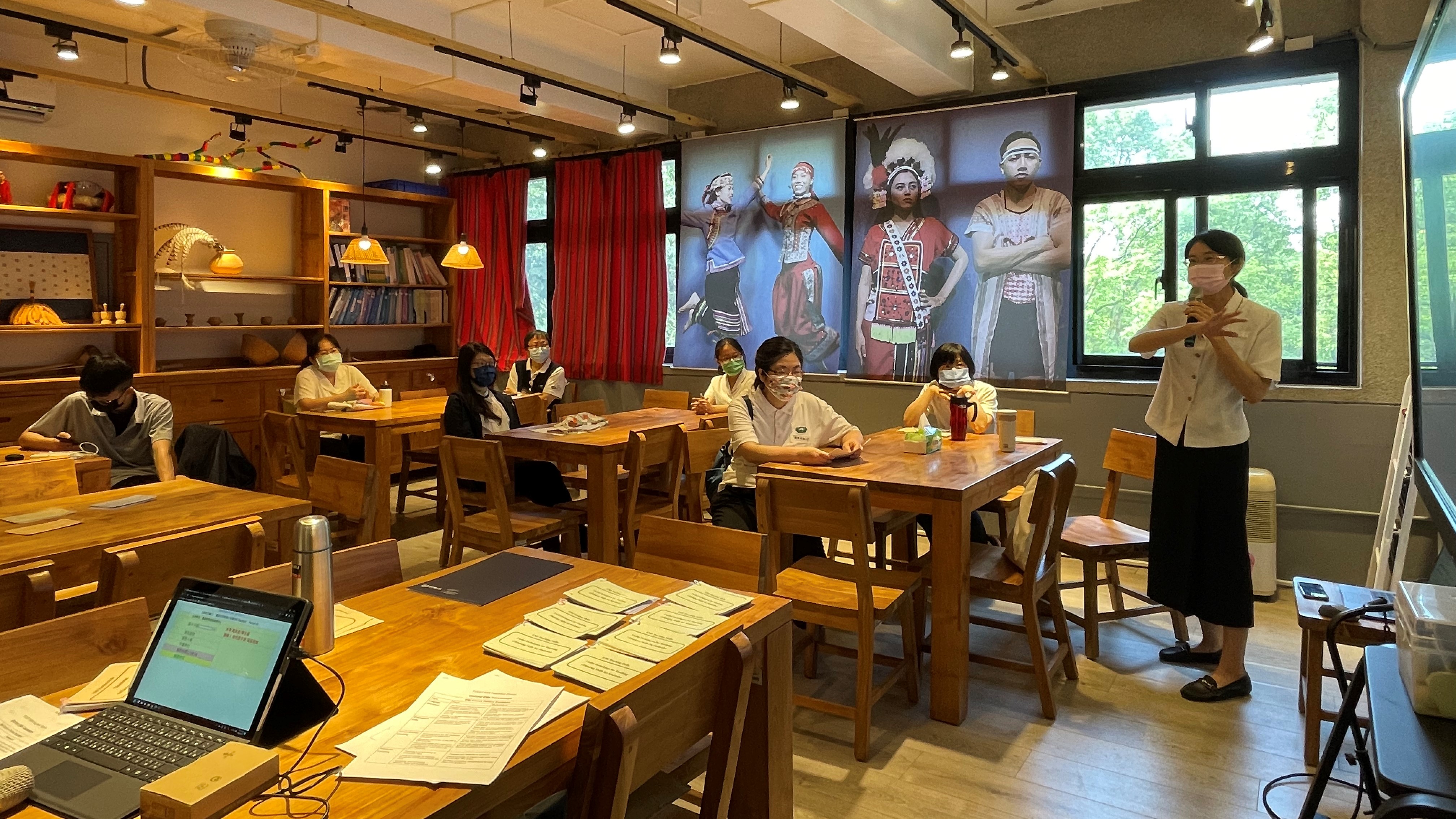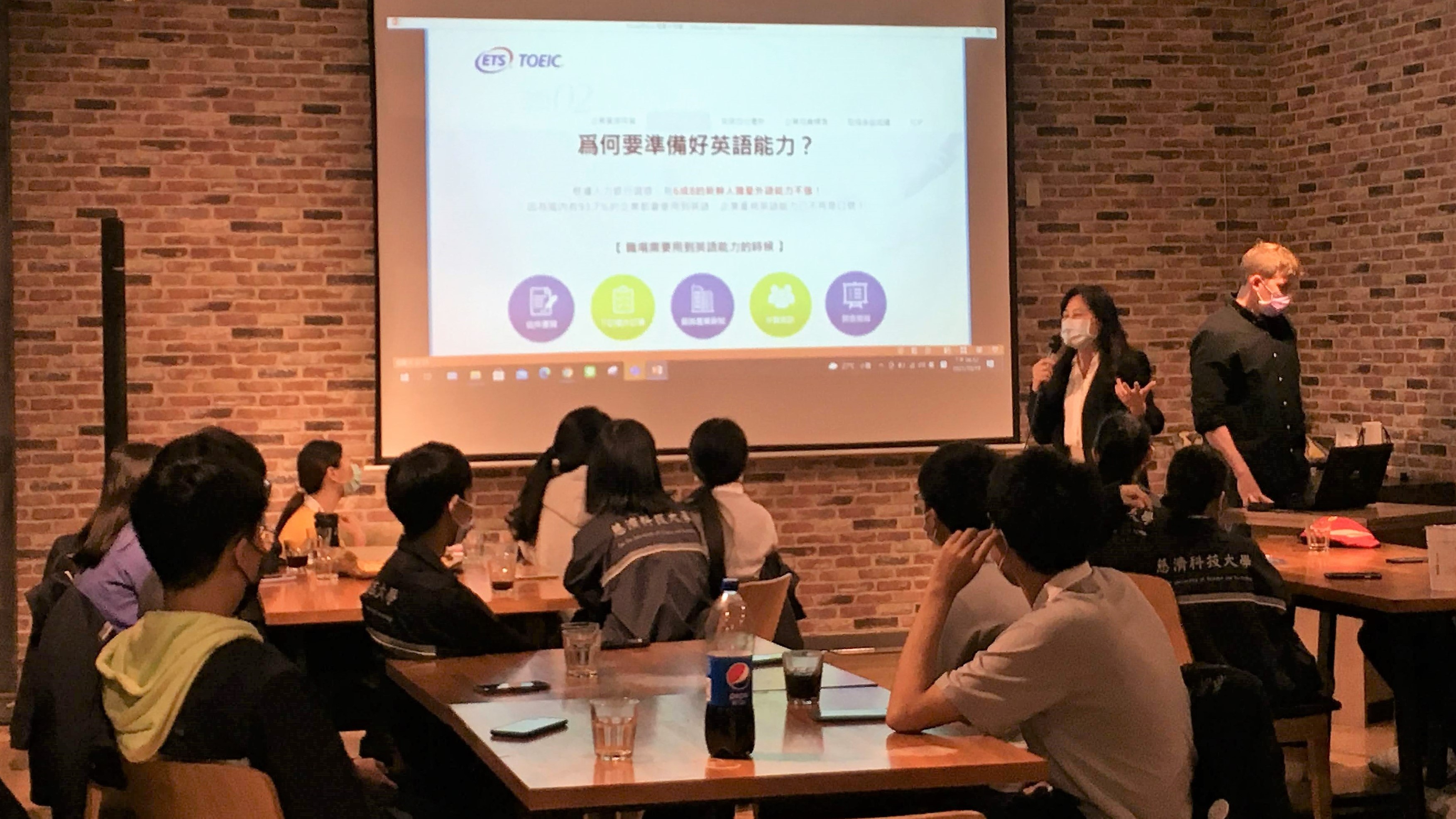Abstract
In the 110 academic year (fall 2021 to summer 2022), our school implemented the Program on Bilingual Education for Students in College (BEST), and the overall results were fruitful. The implementation of each strategy is as follows:
I. Measures to improve students' English proficiency
- Overall aspect: Combined with the internationalization of charity of Tzu Chi Foundation, we have been implementing the international mobility goals and strategies of the middle and long-term school development plan, increasing international enrollment to achieve sustainable development, and enhancing the international competitiveness of the disadvantaged groups in regional education. Our school has developed into the only international University of Science and Technology in Eastern Taiwan.
- Organizational aspect: The Bilingual Education Center was established to provide the needed resources for English teaching development in the whole school and cooperate with various teaching and administrative units.
- For teachers: The center made active efforts in EMI training, teaching support, and recruitment of international scholars.
- In terms of EMI training, the center organized and offered a few courses. First, the Online Oxford EMI Certificate for University Lecturers Course - nineteen teachers joined and obtained their certificates, and five have opened EMI courses in the 110 academic year. Second, the EMI Teachers’ Forum was held every Wednesday at noon, and nine sessions of EMI teaching practices, including class activities, were all conducted in English in the 110-2 semester. Combining theory and practice, the Forum promoted the change of traditional teaching and improved teachers’ English skills. Finally, there were lectures, workshops, class observations, consultations, community events, and other activities, which gathered teachers to share and practice EMI skills.
- In terms of teaching support, each EMI course is equipped a bilingual teaching assistant (TA), the hourly fee of an EMI teacher is multiplied by 1.5 times, and mechanisms such as course subsidies, co-teaching by foreign teachers, class observation, consultation, and community were provided.
- In recruiting international scholars, the Bilingual Education Center has recruited foreign scholars with an EMI education background to assist in the design and practice of EMI courses, explore the learning assessment of EMI courses, develop EMI teacher training forums, and facilitate workshops, consultation, co-teaching, and so on.
- For students:
- Our school supported students’ English proficiency by purchasing language learning software and hardware, creating a bilingual learning space, and promoting interactions between domestic and international students.
- Our school also selects and sends students to overseas exchanges, handles cross-cultural events, and strengthens learning motivation and application. This academic year, the College of Health Technology and Management has selected five students who will have their internship at Tzu Chi Medical Foundation in the US in early 2023. The Office of International and Cross-Strait Affairs and various departments also held several (online) international exchanges, including activities with sister schools in Japan, the United States, Finland, Singapore, and so forth, which promote cultural exchanges and improve English professional presentations and communication skills.
- The graduation certificates shall indicate all EMI courses taken.
- For Curriculum:
- Our school actively encourages teachers to offer EMI courses and offered more than ten EMI courses every semester in the 110 academic year. It included various professional courses from the College of Health Technology and Management and the College of Nursing, the “Credit Program for Cultivating International Management Talents,” and general education courses. In the 110 academic year, the number of sophomores and first-year graduates who took EMI courses reached 19.2%.
- English classes, exams, and activities related to English learning - The Holistic Education Center conducted English placement tests for new students through the College Student English Proficiency Test (CSEPT) of the Language Training and Testing Center (LTTC). Our English compulsory courses have three levels, including basic, general, and advanced. In addition, through the post-test of CSEPT, in the 110-1 semester, 27.5% of the sophomore students reached B1 in English, and 19.5% of them moved to A2. The results are remarkable; including 39% of English classes used English as the language of instruction. And through foreign teachers leading Lunchtime English Chats (52 sessions in the 110 academic year, 869 participants), EMI lectures/workshops (including skateboarding, Brazilian Jiu-Jitsu, and so on), Freshman English Self-Introduction Competitions, and other diverse English learning experiences to improve students’ communication and increase confidence.
- Resource sharing, intercollegiate cooperation, and others The Bilingual Education Center of the school held the “2022 International Forum on Bilingual Education Practice” and specially invited domestic and foreign EMI experts and scholars to give online lectures. More than 100 teaching and research personnel from universities, primary and secondary schools in the United Kingdom, South Korea, and Taiwan participated in the forum to promote the exchange of bilingual teachers. The school is also actively expanding international and inter-school cooperation, extending the campus English learning environment to overseas sister schools and creating a contextualized and immersive language learning environment. In response to the pandemic, the Office of International and Cross-Strait Affairs organized the “2022 TCUST Transcultural Humanities Winter Camp” to promote international and cross-university student exchanges and build this learning environment locally.
II. Construction of EMI teaching and support system measures in the school
To support the development of teaching in English in the entire school, our school set up a dedicated unit: “Bilingual Education Center,” which is responsible for EMI promotion matters and the needed resources for EMI teaching and training. The center also formulates effective methods, strives for various resources inputs, and uses the PDCA method to ensure teaching quality and various performance indicators can grow smoothly.
III. Other supporting measures
The school has strengthened international enrollment (the number of recruits in 2022 increased, and the number of countries became more diverse), established application and review procedures of EMI courses, enhanced the improvement and transformation of English courses, and opened English for specific purposes (ESP) courses. The ESP courses were linked with Professional Vocabulary Quotient Credential (PVQC) Certification tests, as well as intra-school and regional competitions, which showed excellent results.
IV. Management and Examination Mechanism
To implement the plan, manage and assess performance, and reach coordination and integration, the Bilingual Education Center serves as the principal administrative promotion contact, integrates the implementation units of the whole school, and closely combines internal and external resources and inter-school cooperation. At least two center meetings are held per semester to formulate annual work plans and track the implementation results, including the progress of projects, the achievement of performance indicators for courses and activities, and the implementation of funds. The center strives to understand the difficulties encountered by each unit during the implementation process. The center also coordinates solutions across departments to ensure the effectiveness of plan implementation and the quality of target achievement. The school has complete procedures for the implementation stages of various activities. For instance, from plan applications, the use of funds, to questionnaire feedback, and results reports are all reviewed by school-level units to ensure effectiveness and quality, and to improve plan implementation based on feedback.
The center assesses the courses’performance through the EMI Course Teaching Feedback Questionnaire and undertakes the EMI Course Observation measures and follow-up. Also combined with the school-wide teaching feedback evaluation statistics, the 110-2 semester's EMI course teaching evaluation scores (4.85, 4.93) in the Bachelor and Graduate institutes are higher than the school average, which shows that the school’s English-taught courses are in good quality. In the future, the school will conduct institutional research (IR) to improve bilingual teaching consecutively.

